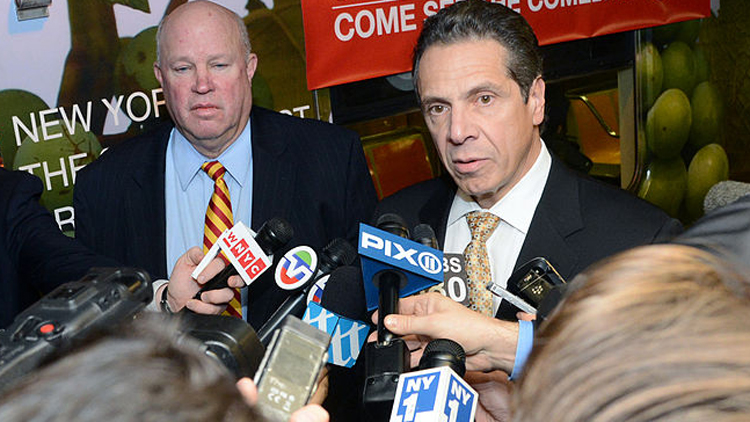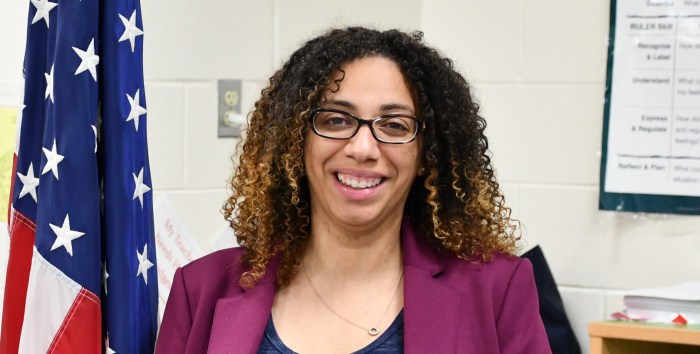The Albany Times Union co-published a version of this story.
Previously undisclosed emails by a mortgage industry lobbyist doubling as a consultant for then Attorney General Andrew Cuomo show the lobbyist played a self-described “critical role” in one of Cuomo’s signature financial crisis investigations.
The emails from 2007 and 2008 detail how the lobbyist, longtime Cuomo confidant Howard Glaser, was involved in an investigation of mortgage industry players that included Glaser’s own clients.
In one email, Glaser touted his influence over a Cuomo deal that weakened rules to prevent misdeeds in the mortgage market. That deal, with mortgage giants Fannie Mae and Freddie Mac, reflected Glaser’s “significant, critical, and current input,” he wrote in an email, “a fact to which current [Fannie and Freddie] employees and the NYAG’s office are prepared to attest.” Fannie and Freddie were both Glaser’s clients.
The emails contradict Glaser’s previous account of his involvement in Cuomo’s investigations.
ProPublica and the Albany Times Union reported last year that Glaser was working simultaneously as a consultant for the attorney general’s office and for a bevy of mortgage industry firms. Glaser said at the time that he only gave general advice to Cuomo’s office, that he did not represent clients with the attorney general, and that he was “not involved” in specific mortgage industry cases.
According to the emails, however, Glaser was involved in mortgage industry cases and traveled to Cuomo’s office repeatedly over the course of nearly two years while investigations related to Glaser’s clients unfolded.
“Oy. I Spent the last 48 hrs at the NY AG’s office and am glad to give you an off the record briefing and my observations,” Glaser wrote in a Nov. 7, 2007, email to the federal regulator of Fannie and Freddie. That same day, Cuomo announced subpoenas of the two mortgage giants as part of an investigation into fraudulently inflated home appraisals.
“These emails on their face indicate a serious conflict of interest, a conflict that could very well have influenced enforcement actions by Cuomo, much to the benefit of Glaser’s clients,” said Craig Holman of the government watchdog group Public Citizen.
The new emails also show how Glaser briefed industry players about Cuomo’s investigation while Glaser was involved in it.
In early November 2007, Glaser gave details to analysts on a conference call hosted by the investment bank Keefe, Bruyette & Woods about Cuomo’s investigation of inflated appraisals. Glaser gave the investment bank briefing just a couple of days after he had “spent the last 48 hrs at the NY AG’s office.”
Asked last year about that call, Glaser said he had relied strictly on public information. “I understand you will want to imply I had some special information due to the history w cuomo but that is horseshit,” Glaser emailed ProPublica last year.
It had been a busy month for Glaser. He also provided an update on Cuomo’s appraisal investigations to the National Association of Realtors, which was later identified in press reports as a Glaser client.
Glaser recently told ProPublica he stands by his comment last year that he did not “represent any clients with the AG’s office.” He did not elaborate on his email trumpeting to a client his influence “in the matter of the New York Attorney General’s investigation.”
Asked about the reference to the “48 hours” at the attorney general’s office, Glaser said in an email he had been “making my annual Election Day visit to NY.” He declined to comment further. He also declined to provide the dates for which he was working as a consultant for the attorney general’s office.
Glaser has declined to provide a list of his clients. But a professional bio from the period identified some as “mortgage insurance companies, real estate and housing trade associations, mortgage bankers, and investment research companies.”
A spokeswoman for Cuomo did not respond to requests for comment.
The emails, obtained through a public records request, were sent by Glaser to the general counsel of the Federal Housing Finance Agency. The agency regulated Fannie and Freddie and took more direct control of the companies during the financial crisis in September 2008.
Some of the email traffic concerned a billing dispute in which Glaser describes his work for Freddie on Cuomo’s appraisal standards investigation and settlement.
In early 2008, Cuomo struck a deal with Fannie and Freddie that was designed to stamp out conflicts of interest in appraisals. But several industry groups and banks fought the settlement. In a June 2008 email, sent when Cuomo’s appraisal deal was facing industry pushback, Glaser wrote: “I am heading up to NY AG tomorrow plan to have some informal discussion re appraisal and how to close this down.”
That August, he updated the FHFA general counsel about his work on the appraisal negotiations. “I have the 4 major financial institutions ready to adopt the [appraisal] code,” he wrote. (Glaser recently told ProPublica, “I never had the banks as clients in any matter.”)
In December 2008, Cuomo announced a revised deal, weakening rules that had been meant to ensure the independence of appraisers. That’s the deal Glaser said he played a “critical role” in.
Steven Cohen, who was Cuomo’s chief of staff in the attorney general’s office, said he stood by earlier comments that Glaser had “served as a general consultant on the industry overall. He did not provide advice on specific investigations.” Cohen declined to comment on the new emails that show Glaser’s dealings with the attorney general’s office.
Glaser went on to serve as state operations director after Cuomo became governor in 2011; he left the administration last summer. Both Cohen and Glaser now work for billionaire businessman Ron Perelman, a generous supporter of Cuomo’s campaigns.
The new emails leave some questions unanswered about Glaser’s dealings with the attorney general’s office. As we previously reported, another of Glaser’s clients, the mortgage due diligence firm Clayton, received immunity from Cuomo as part of a cooperation deal. Glaser has said he did not represent Clayton in its dealings with the attorney general’s office.
Glaser’s years-old emails also show the importance of email preservation at a time when the Cuomo administration is under fire for instituting a policy that purges emails after 90 days unless they’re actively retained. If the emails had been sent to or from Cuomo’s current office or a state agency under the new policy, they likely would have been lost.
If you have information related to this article, or other tips related to New York, email justin@propublica.org.
Related stories: For more coverage of Andrew Cuomo and Howard Glaser, read ProPublica’s previous reporting: After Pledge of Sunlight, Gov. Cuomo Officials Keep Their Email in the Shadows and Cuomo’s Office Denies Using Private Email Accounts. But it Does.
ProPublica is a Pulitzer Prize-winning investigative newsroom. Sign up for their newsletter.



























